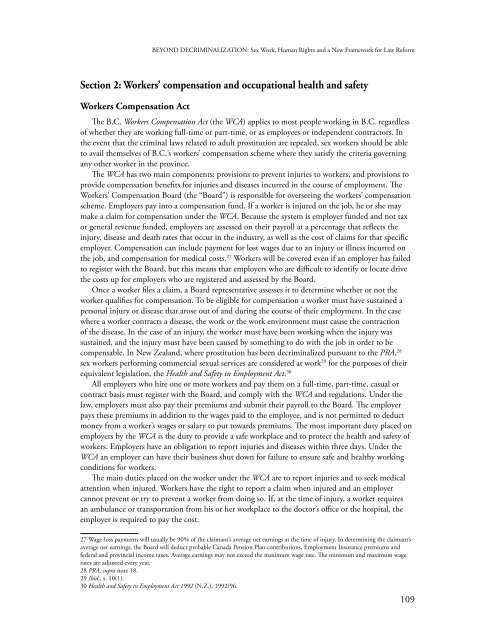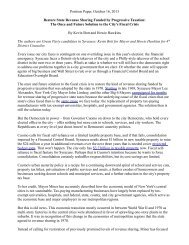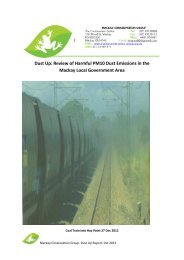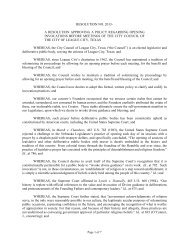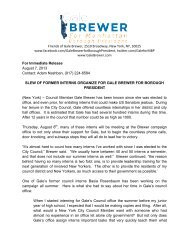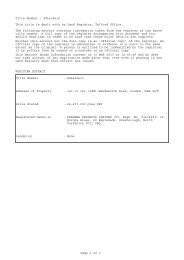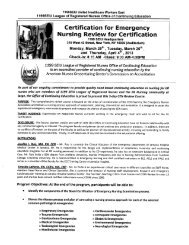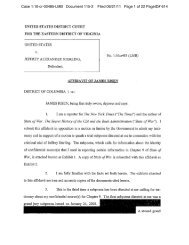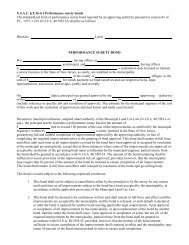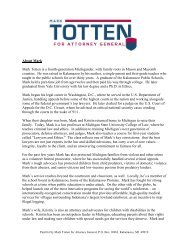Beyond Decriminalization: Sex-work, Human Rights and a New ...
Beyond Decriminalization: Sex-work, Human Rights and a New ...
Beyond Decriminalization: Sex-work, Human Rights and a New ...
- No tags were found...
You also want an ePaper? Increase the reach of your titles
YUMPU automatically turns print PDFs into web optimized ePapers that Google loves.
BEYOND DECRIMINALIZATION: <strong>Sex</strong> Work, <strong>Human</strong> <strong>Rights</strong> <strong>and</strong> a <strong>New</strong> Frame<strong>work</strong> for Law ReformSection 2: Workers’ compensation <strong>and</strong> occupational health <strong>and</strong> safetyWorkers Compensation ActThe B.C. Workers Compensation Act (the WCA) applies to most people <strong>work</strong>ing in B.C. regardlessof whether they are <strong>work</strong>ing full-time or part-time, or as employees or independent contractors. Inthe event that the criminal laws related to adult prostitution are repealed, sex <strong>work</strong>ers should be ableto avail themselves of B.C.’s <strong>work</strong>ers’ compensation scheme where they satisfy the criteria governingany other <strong>work</strong>er in the province.The WCA has two main components: provisions to prevent injuries to <strong>work</strong>ers, <strong>and</strong> provisions toprovide compensation benefits for injuries <strong>and</strong> diseases incurred in the course of employment. TheWorkers’ Compensation Board (the “Board”) is responsible for overseeing the <strong>work</strong>ers’ compensationscheme. Employers pay into a compensation fund. If a <strong>work</strong>er is injured on the job, he or she maymake a claim for compensation under the WCA. Because the system is employer funded <strong>and</strong> not taxor general revenue funded, employers are assessed on their payroll at a percentage that reflects theinjury, disease <strong>and</strong> death rates that occur in the industry, as well as the cost of claims for that specificemployer. Compensation can include payment for lost wages due to an injury or illness incurred onthe job, <strong>and</strong> compensation for medical costs. 27 Workers will be covered even if an employer has failedto register with the Board, but this means that employers who are difficult to identify or locate drivethe costs up for employers who are registered <strong>and</strong> assessed by the Board.Once a <strong>work</strong>er files a claim, a Board representative assesses it to determine whether or not the<strong>work</strong>er qualifies for compensation. To be eligible for compensation a <strong>work</strong>er must have sustained apersonal injury or disease that arose out of <strong>and</strong> during the course of their employment. In the casewhere a <strong>work</strong>er contracts a disease, the <strong>work</strong> or the <strong>work</strong> environment must cause the contractionof the disease. In the case of an injury, the <strong>work</strong>er must have been <strong>work</strong>ing when the injury wassustained, <strong>and</strong> the injury must have been caused by something to do with the job in order to becompensable. In <strong>New</strong> Zeal<strong>and</strong>, where prostitution has been decriminalized pursuant to the PRA, 28sex <strong>work</strong>ers performing commercial sexual services are considered at <strong>work</strong> 29 for the purposes of theirequivalent legislation, the Health <strong>and</strong> Safety in Employment Act. 30All employers who hire one or more <strong>work</strong>ers <strong>and</strong> pay them on a full-time, part-time, casual orcontract basis must register with the Board, <strong>and</strong> comply with the WCA <strong>and</strong> regulations. Under thelaw, employers must also pay their premiums <strong>and</strong> submit their payroll to the Board. The employerpays these premiums in addition to the wages paid to the employee, <strong>and</strong> is not permitted to deductmoney from a <strong>work</strong>er’s wages or salary to put towards premiums. The most important duty placed onemployers by the WCA is the duty to provide a safe <strong>work</strong>place <strong>and</strong> to protect the health <strong>and</strong> safety of<strong>work</strong>ers. Employers have an obligation to report injuries <strong>and</strong> diseases within three days. Under theWCA an employer can have their business shut down for failure to ensure safe <strong>and</strong> healthy <strong>work</strong>ingconditions for <strong>work</strong>ers.The main duties placed on the <strong>work</strong>er under the WCA are to report injuries <strong>and</strong> to seek medicalattention when injured. Workers have the right to report a claim when injured <strong>and</strong> an employercannot prevent or try to prevent a <strong>work</strong>er from doing so. If, at the time of injury, a <strong>work</strong>er requiresan ambulance or transportation from his or her <strong>work</strong>place to the doctor’s office or the hospital, theemployer is required to pay the cost.27 Wage-loss payments will usually be 90% of the claimant’s average net earnings at the time of injury. In determining the claimant’saverage net earnings, the Board will deduct probable Canada Pension Plan contributions, Employment Insurance premiums <strong>and</strong>federal <strong>and</strong> provincial income taxes. Average earnings may not exceed the maximum wage rate. The minimum <strong>and</strong> maximum wagerates are adjusted every year.28 PRA, supra note 18.29 Ibid., s. 10(1).30 Health <strong>and</strong> Safety in Employment Act 1992 (N.Z.), 1992/96.109


